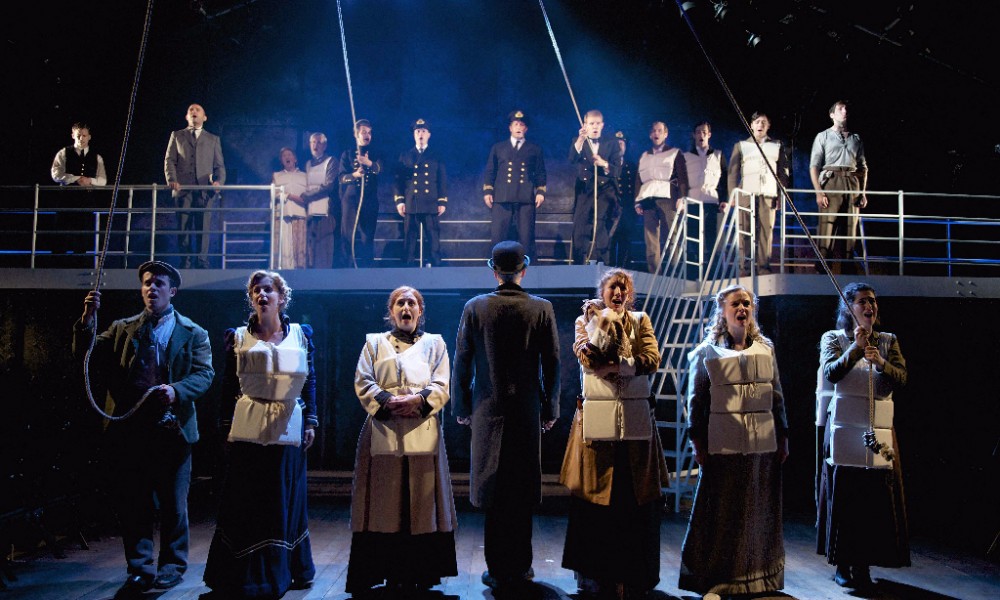Titanic at the Charing Cross Theatre

There are many reasons why reviving a Titanic production is a risk. Director Thom Southerland’s version, based on Peter Stone’s book, was last performed in 2013 and proved to be a great success. Now showing at the Charing Cross Theatre, those coming back to see it will have high expectations and everyone else will likely hold the 1997 film as a model for comparison, which makes a revival of this musical a considerable challenge. Besides, everyone is aware of the story’s outcome, so the element of suspense cannot be resorted to.
Perhaps driven by these potential obstacles, Southerland aims (and reaches) high. The costumes are flawless, the singing superb and the 20-strong cast work as one unit where each actor excels without outshining the rest. The stage is rather small considering where the story is set, but as soon as the action begins the steel background representing one side of the ship, and a few railings and movable stairs, prove to be enough to set the scene without becoming obtrusive.
Much more than a standard passenger ship, the Titanic did not only boast advanced technology for its time, but was seen as a symbol of progress and innovation that an entire generation could be proud of. The musical shows that this feeling of enthusiasm and ambition extended to its passengers: from the girls and lads in third-class who see America’s opportunities as their salvation, to the second-class travellers who want to rub shoulders with the rich and successful, and then the first-class passengers who are enjoying a confirmation of their status.
The plot focuses on a number of couples belonging to different classes, and their personal aspirations. It then switches to the crew and the conversations that, according to myth, led to the disaster. White Star chairman Ismay plays the part of the villain. His insistence on making the ship go faster and pushing it to its very limit troubles Captain Smith and his crew but no one dares contradict him. Each character has the name of an actual passenger of the original Titanic so that the play acts as a tribute to those who lost their lives on that journey.
The songs may not be the catchiest, but the score is worthy of praise for the very understated, non-distracting way in which it creates the right mood for each scene. The premise of a Titanic musical, a too-familiar tragedy narrated through song, does not sound very appealing, but that could be the secret of the show’s success: it sneaks up on the audience as an unexpected, pleasant surprise that impresses on every level.
Mersa Auda
Titanic is on at the Charing Cross Theatre from 28th May until 6th August 2016, for further information or to book visit here.

























Facebook
Twitter
Instagram
YouTube
RSS